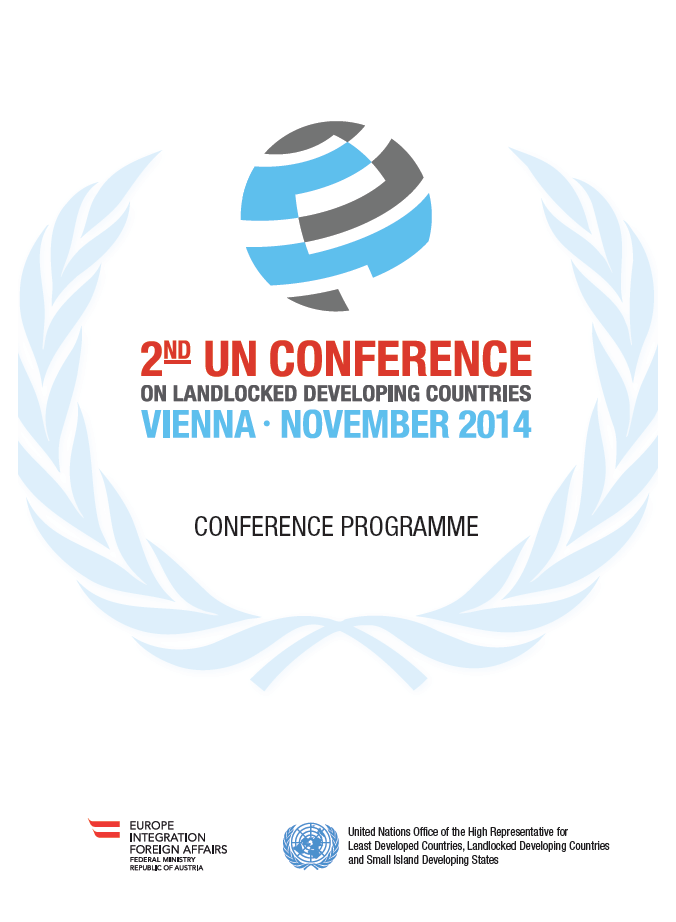High-Level Dialogue on role of commodities and development at the 2nd UN Conference on LLDCs
UNCTAD, CFC and UN-OHRLLS will lead a high-level dialogue at the 2nd United Nations Conference on Landlocked Developing Countries in Vienna, Austria to share their findings in greater detail. Entitled "Policies and strategies to turn commodity dependence into sustainable, inclusive and equitable economic growth and development for Landlocked Developing Countries (LLDCs)" which will be held at the Vienna International Centre - Room M7, on 4 November 2014 (15:15-16:45)
UNCTAD, CFC and UN-OHRLLS will lead a high-level dialogue on "Policies and strategies to turn commodity dependence into sustainable, inclusive and equitable economic growth and development for Landlocked Developing Countries" during the 2nd UN Conference on LLDCs which will be held in Vienna from 3 to 5 November 2014.
This event will take place on 4 November (15:15 - 16:45) at Vienna International Centre, Room M7.
Study identifies challenges and priorities for commodity-dependent LLDCs
A study undertaken by UNCTAD and financed by the Common Fund for Commodities has revealed the significance of commodity dependence in Landlocked Developing Countries (LLDCs).
The study confirmed the importance of commodities in LLDCs, especially in terms of share of exports, foreign direct investment (FDI) and employment. For instance, the study found that from 2011 to 2013, more than half of all exports from 27 out of 32 LLDCs were primary commodities. Resource-based goods (i.e. primary goods and resource-based manufactures) accounted for some three-quarters of all exports from LLDCs as a group. These and other findings clearly indicate that the commodity sector provides an essential link between LLDCs and the global economy.
Reliance on commodities for participation in global trade, one of the features of commodity dependence, presents several economic challenges to LLDCs. For example, excessive reliance on commodities has increased their vulnerability to volatile international commodity prices. This declining secular trend in the terms of trade for commodities presents a constant challenge for macroeconomic stability. Another concern is that natural resource wealth can have negative consequences for corruption and governance. Finally, ‘landlockedness’ results in higher-than-average transport costs for primary products.
Transforming commodity dependence in LLDCs into sustainable, inclusive and equitable economic growth requires action at the regional, national and international level. At the regional level, the study identified transit system improvement as the key priority. Nationally, LLDCs must link the export commodity sector with domestic sectors as part of their national development strategies. This includes, among other things, putting commodity issues at the heart of domestic development policies, facilitating investment flows to commodities sector, effective participation of LLDCs in regional and global value chains, promoting (non-) traditional exports and acquiring technologies that improve productivity. International support should include transfer of technology and related know-how, as well as forms of financing that encourage commodity diversification and value addition.
The results of the CFC-UNCTAD study will be examined in depth during the above high-level dialogue. This session will offer a platform to discuss policies and strategies related to commodity-based development in LLDCs, including the growing importance of the private sector.

